
Aina Abell
Editorial Assistant
Aina Abell is the editorial assistant at Science News. She holds a bachelor’s degree in biological sciences from the University of Southern California. Before joining the staff in October 2020, she was the assistant editor at Pharmacy Today, a publication of the American Pharmacists Association, and a freelance writer for the American Heart Association. She has also taught English in Rouen, France. When she’s not nerding out about bonobos and ancient humans, she’s probably learning Arabic or attempting to make her favorite Filipino meals.

Trustworthy journalism comes at a price.
Scientists and journalists share a core belief in questioning, observing and verifying to reach the truth. Science News reports on crucial research and discovery across science disciplines. We need your financial support to make it happen – every contribution makes a difference.
All Stories by Aina Abell
-
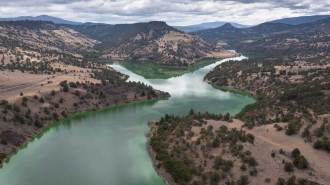 Environment
EnvironmentHow a Yurok family played a key role in the world’s largest dam removal project
In The Water Remembers, Amy Bowers Cordalis shares her family’s account of the Indigenous-led fight to restore the Klamath River in the Pacific Northwest.
-
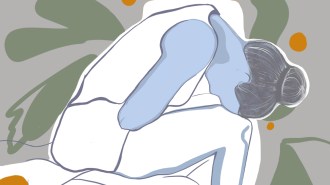 Health & Medicine
Health & Medicine50 years ago, chronic pain mystified scientists
Chronic pain has puzzled scientists for decades, but diagnoses and treatments have come a long way.
-
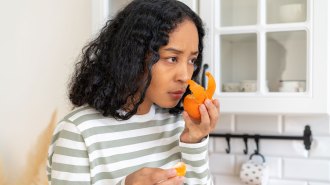 Health & Medicine
Health & Medicine50 years ago, scientists suspected that lost sense of smell could be restored
Cells responsible for humans’ sense of smell can regenerate. Now, research spurred on by the pandemic could help answer questions about the process.
-
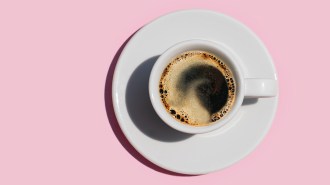 Health & Medicine
Health & Medicine50 years ago, scientists thought coffee might treat hyperactivity
Decades of follow-up research into whether caffeine can treat the symptoms of kids with ADHD has come up with more questions than answers.
-
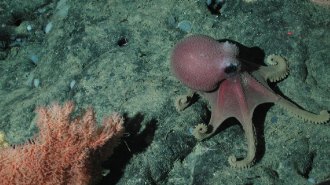 Science & Society
Science & SocietySea life offers a lens for self-exploration in ‘How Far the Light Reaches’
In a collection of essays profiling 10 marine animals, author Sabrina Imbler mixes in stories of their own family, self-discovery, sexuality and healing.
-
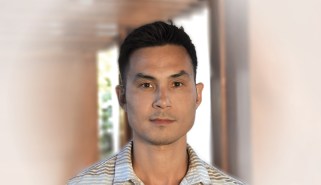 Life
LifeMarcos Simões-Costa asks how cells in the embryo get their identities
Marcos Simões-Costa combines classic studies of developing embryos with the latest genomic techniques.
-
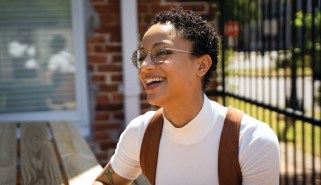 Anthropology
AnthropologyTina Lasisi wants to untangle the evolution of human hair
Tina Lasisi is pioneering studies of human variation in an ethical and scientifically sound way.
-
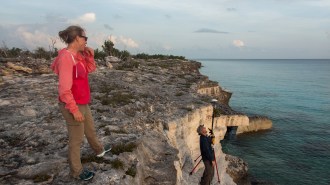 Earth
EarthJacky Austermann looks to the solid earth for clues to sea level rise
Jacky Austermann’s work could help inform practical climate change solutions for at-risk coastal cities.
-
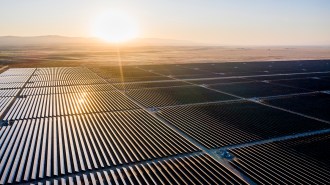 Tech
Tech50 years ago, the future of solar energy looked bright
In the 1970s, scientists and engineers were coming around to the idea of “farming” the sun’s energy on a large scale.
-
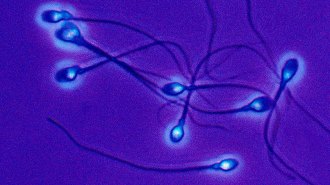 Humans
Humans50 years ago, freezing sperm faced scientific skepticism
In 1972, scientists debated the long-term viability of frozen sperm. Fifty years later, children have been conceived with sperm frozen for decades.
-
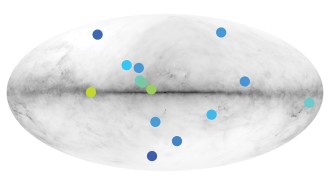 Space
SpaceThese discoveries from 2021, if true, could shake up science
Discoveries in 2021, from hidden subatomic particles to the oldest animal fossils, could shake up science. But more evidence is needed to confirm them.
-
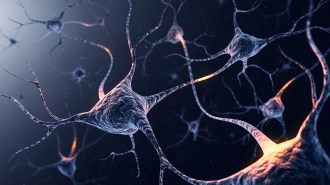 Neuroscience
Neuroscience50 years ago, scientists were on the trail of ‘memory molecules’
In the 1970s, scientists found the first “memory molecule.” Several other candidates have popped up in the decades since.